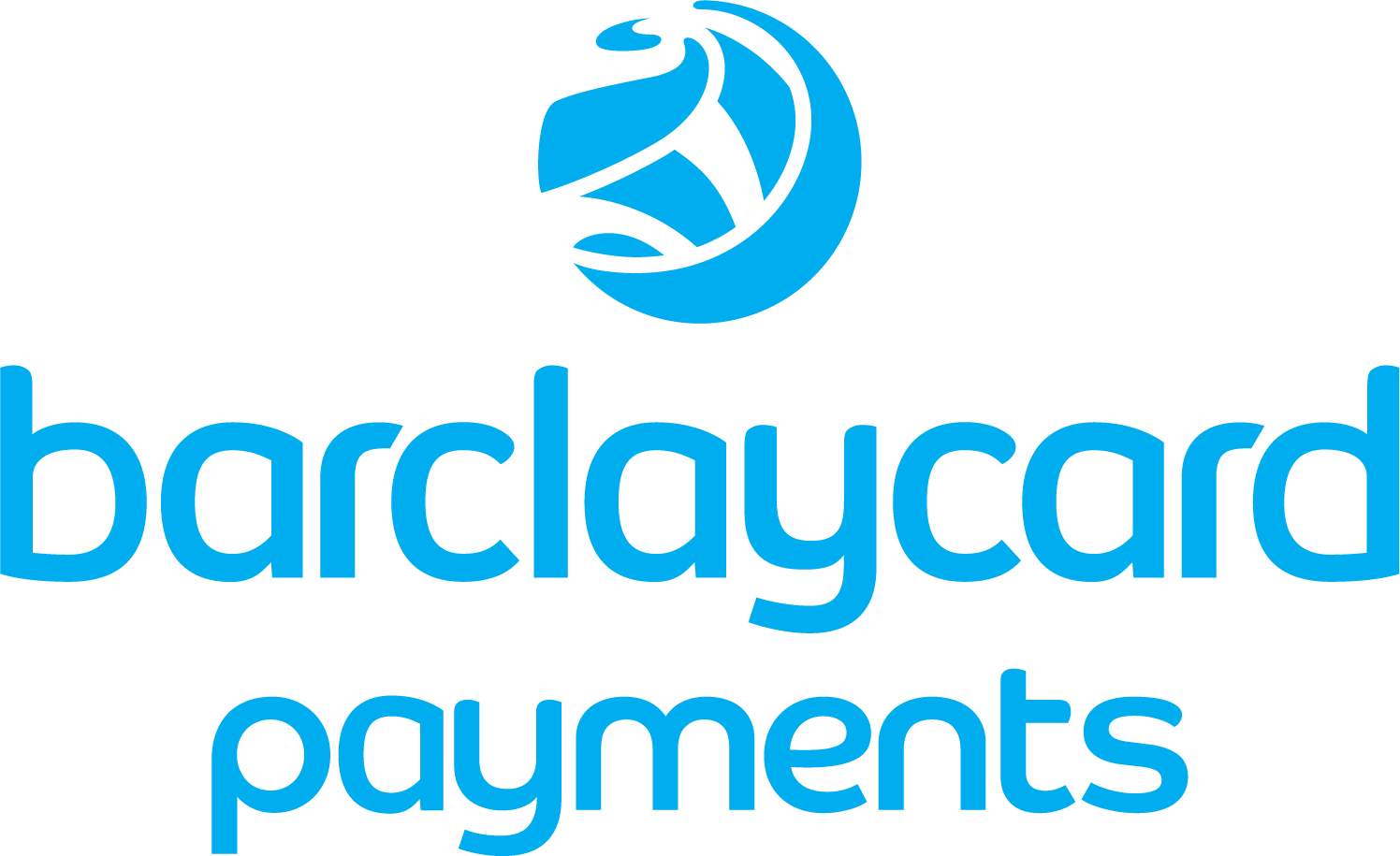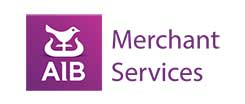- Accept card payments – lowest rates from 0.27%
- Keep your card processing fees to a minimum
- Direct access to the UK’s leading card processing banks
- We ensure your rates always remain competitive
No spam emails or calls
Choose from the payment methods then click Next
What's your turnover each month?
Enter the name of your company
Enter your company's postcode and contact number
Tell us what you need
Fill in our quick form and we’ll give you a call for a brief 5-minute chat to understand exactly what you're looking for.
Get tailored quotes
We’ll match you with up to three of the most competitive offers from our trusted providers that suit your business.
Pick with confidence
We’ll help you understand the options so you can choose the best fit — quickly, clearly, and without any pressure.






Save Money with Credit Card Payments for Small Business
Recommendations for card payment companies?
For small businesses, you may want to look at options such as Square, PayPal, or Stripe for credit card payments. These companies have easy-to-use interfaces. The fees are good and the customer support is strong. Each one gives tools that fit different business needs. This helps you accept payments faster and helps you keep your cash flow steady. Your customers can be happy with how simple and quick the process is.
In today’s digital world, the need to accept credit card payments is more important than ever for businesses of every size. No matter if you have a small shop, an online store, or a big company, letting your customers pay by credit card can help you get more sales and keep people happy. Still, with so many payment processing choices around, picking the right and cost effective way for credit card processing can feel hard. This guide covers what you have to look at when you pick a payment processor. We talk about things like transaction fees, monthly fees, hidden fees, and other important details. Our goal is to help you understand and make a smart choice for your credit card payments.
Understanding Credit Card Processing
Credit card processing helps stores and businesses take credit card payments smoothly. They use it to let people pay with cards, including American Express. The process has several important parts like banks, payment processors, and credit card companies. These parts work together to help each payment go through quickly. A business owner needs to know how credit card processing works. This way, they can understand the fees that come with taking credit card payments.
The credit card processing system usually has a few steps. First, there is authorization. This happens when a customer buys something and gives their card information.
Business Account Integration with Card Payments (Running Finances in Sync)
Text: The card is checked to make sure it is real and has enough money in it. To keep credit card payments safe and do well with security measures for your small business customers, you need to use a good payment gateway and a reliable payment processor. Always send card information over secure, encrypted lines. Be sure to keep any sensitive information safe, or if you can, do not keep it at all. Always follow PCI DSS guidelines from the payment card industry to protect payment card information. Update your payment systems often, and train your staff so they can spot fraud or odd behavior. Using the right security measures helps keep all card payments and customer details safe and sound.
- Authorization: When a customer buys something, their credit card information is checked to make sure the card is real and there is enough money in their account.
- Capture: The merchant collects the card information and sends it to the payment processor to keep going with the payment.
- Processing: The payment processor checks the credit card information and then sends the transaction to the credit card company to get approval.
- Settlement: If the transaction gets approval, the credit card company sends the money to the merchant’s bank account.
Mobile payments let customers pay right from their phones. They can use apps or digital wallets. This is easy for business owners, because they can take payments anywhere and at any time. It helps the business owners serve people quickly and keep transactions moving on the go.
- In-person payments: Customers can make a payment in person. They use a credit card terminal or a point-of-sale system to do this.
- Online payments: Customers can make an online payment. This is done through a payment gateway or an e-commerce platform.
- Mobile payments: Customers can use their mobile devices to make a payment. They do this through mobile payment apps or wallets.
When you know these steps and ways, your business can handle payment processing better. This can help you lower the costs that come with it.
Understanding Credit Card Processing Fees
Before looking at the cheapest ways for credit card processing, it’s good to know the different fees that come with every credit card payment. This can help small businesses feel more ready and have a better customer experience. The fees also matter a lot if your budget is tight. Here’s a look at the most common costs you might face.
1. Transaction Fees
Transaction fees apply each time someone pays with a credit or debit card. Most of the time, these fees cover:
- Interchange Fees: Card networks like Visa and Mastercard set these fees. They go to the bank that gives out the card. The amount can change. It depends on the kind of transaction, the card type, and what business is taking the payment.
- Assessment Fees: The card networks charge these when you use their system.
- Processor Markup: This is what the payment processor charges to help complete the transaction.
2. Monthly Fees
Many payment processors will ask you to pay a set fee every month to use their services. This can have:
- Monthly Service Fee: You pay this as a set cost each month for using the payment processor’s platform.
- Minimum Monthly Transaction Fee: If you do not have enough sales each month, the payment processor might add another transaction fee.
3. Payment Gateway Fees
For online payment processing, companies need payment gateways. These gateways send payment data in a safe way. Some companies ask for extra money for this. Others put it in the price you pay for their service.
4. Hidden Fees
Be wary of hidden fees, such as:
- Setup Fees: The setup fees are paid when you create your account. They can change based on the type of transaction.
- Early Termination Fees: You may have to pay these fees if you end your contract before it was supposed to finish.
- Chargeback Fees: You will get this fee if a person complains about a transaction.
- Authorisation Fees: This fee is charged to check if a card is valid.
5. Additional Fees
Depending on what your business needs, you may see:
- International Payment Fees: You pay these fees when you use debit card or credit card to send money from one country to another.
- Debit Card Processing Fees: Using a debit card often costs less than using a credit card, but you may still have to pay some fee.
- Payment Collection Fees: These are the fees taken when you get payments over and over, like with subscriptions.
Factors to Consider When Choosing a Payment Processor
To get the best deal on credit card processing, you need to think about a few important things. It is good to look at the costs that come with each credit card option. Make sure you check what you will pay when you use the card. Look at any monthly fees, transaction fees, and if there are any hidden charges. Think about how you will use your credit card and what fits your business the best. It helps to read what other people say about their experience. This way you can make the right choice for your needs.
1. Transaction Volume and Value
- If you get or handle many transactions, your business may have lower transaction fees.
- For businesses that deal with big payments, it’s good to find payment processors that offer better prices for high amounts.
2. Pricing Models
- Flat Rate Pricing: This method charges a set percent for each payment. It can be good for small businesses, especially those that do not do a lot of sales.
- Interchange-Plus Pricing: Here, you pay the base fee and a set amount on top. This is a clear way to see what you are paying each time.
- Tiered Pricing: With this style, payments are split into groups. These groups are called qualified, mid-qualified, or non-qualified. It can make the cost higher for some people.
3. Payment Methods
Make sure the processor supports every payment method that your customers use. This includes credit card payments, debit card payments, and any card transactions. Find one that also works with the online payment method your customers prefer.
4. Integration Options
- If you run an online store, it’s important that the payment gateway works well with your website and payment processor. This helps make buying things easy for your customers.
- If you take person payments, you should choose a point of sale system. It should connect without any trouble with your payment processor. This way, taking payments at your shop or office is simple.
5. Customer Support
A good payment service provider should always have customer support ready to help. You can get help at any time, day or night, if you have a problem. This way, the service provider can solve issues fast for you.
6. Contract Terms
- Try not to sign up for long agreements that make you pay to leave early.
- Find companies with no charges to start and plans that can change when you need.
Most Cost Effective credit card payments for small business Options for UK Businesses
Here are some of the best choices for cost effective credit card processing for UK businesses. These options can help you use a credit card for payment and keep your costs down. It will be good for people who want to save money when they get help with credit card processing in their work. These ways make it easier for UK companies to take card payments without spending too much.
1. Square
- Pricing: There is a set rate of 1.75% for each transaction when you take person payments. For online payments, it will be 2.5% for each deal.
- Pros: You do not have any monthly fees or extra hidden costs. Their point of sale is easy for people to use.
- Cons: The fees can be higher if you are in some high-risk jobs or industries.
2. PayPal
- Pricing: You will need to pay 1.2% plus £0.30 for each person payments you take in person. For online payments, it is 2.9% plus £0.30 for each one.
- Pros: A lot of people know about this service, and it is easy to set up with online payment systems.
- Cons: The fees are higher if you get payments from other places outside your country.
3. Stripe
- Pricing: The rate is 1.4% plus £0.20 for European cards. For non-European cards, it be 2.9% plus £0.20.
- Pros: There be low transaction fees. The API is strong so it works well for custom setups.
- Cons: You need to have some technical skill to set it up.
4. SumUp
- Pricing: The cost is a flat fee of 1.69% for each transaction.
- Pros: There are no monthly fees. It is good for small businesses.
- Cons: It does not have as many features as some other companies.
5. Worldpay
- Pricing: The price changes depending on how many transactions you have and what your business type is.
- Pros: This is a reliable service provider. It lets you make payments to people in other countries.
- Cons: The fees can be higher if your business does not have a lot of transactions.
6. Adyen
- Pricing: This uses interchange-plus pricing and there are no monthly fees.
- Pros: The pricing is good if you have a lot of transactions. It lets you accept payments in several ways, including card payment.
- Cons: It is not the best choice for small businesses.
Debit Card Processing and Other Payment Methods
Debit card processing is a good way to keep costs down compared to credit card processing. With debit card payment processing, you take money straight from the customer’s checking account instead of letting them use credit. There are lower fees with debit card payment processing. So, this can help businesses save money and improve cash flow. Many companies like the lower fees and see debit card processing as a better choice for payment processing over credit card processing.
Along with card payment options like credit card and debit card, businesses can use other ways to get paid. These include ACH payments. ACH payments are when money moves straight from the customer’s account to the merchant account. People use this a lot for regular bills. Paying this way can be cheaper than credit card payments.
To help keep card payment safe for your small business customers, you should take simple steps. These steps are using card payment processors that follow PCI rules, encrypt card payment data, and watch card transactions for signs of trouble. It is also good for businesses to use secure payment gateways. Train staff so they know how to spot wrong card payment attempts, and never save full credit card information in your own systems.
- ACH payments: ACH payments use the Automated Clearing House to move money. The funds go straight from the customer’s bank account to the merchant’s bank account. Many people use this way for regular payments. This method costs less than credit card transactions. It also makes sure the customer’s bank account is charged the right amount.
- Bank transfers: A customer can pay by moving money from their bank account to the merchant’s bank account. This process is very secure. It works well for large payments.
- Online invoicing: A merchant can send bills to customers over the internet. The customer can pay online. This way is easy for both the business account and the customer.
- Recurring payments: A merchant can set up payments to happen on a regular basis. Customers can pay automatically from their account. This is best for services that work like subscriptions or need regular payments.
By giving people different ways to pay, businesses can meet what customers want. This can also help lower payment processing costs for them.
Buying Guide: Choosing a Cheap Payment Service Provider
Choosing a low-cost payment service provider with good customer service can help your business save money. It can lower the fees you pay for each transaction. When you pick a payment service provider, there are some important things you should think about.
- Transaction fees: You want to find providers with low transaction fees for things like debit card payments and other types of payment. Over time, lower fees help save you money.
- Monthly fees: Pick providers with low monthly fees, or no fees at all, if your business does not have many card transactions. This keeps your costs down.
- Payment processing fees: The provider should have good payment processing fees, especially for online payments. Lower fees mean you pay less over the year.
- Hidden fees: Watch out for any hidden fees from the provider. These could be setup fees, cancellation fees, or chargeback fees. When you add these up, you could lose a lot of profit.
- Online payment processing: If you have an online business, choose a provider that is good at online payment processing and has tools like a secure payment gateway for your website.
- Credit card payments: Go for providers that ask for low fees on credit card transactions, especially if your business does a lot of credit card payments.
- Payment gateway: Make sure your provider gives you a trustworthy payment gateway. A strong payment gateway is the key for safe online payments.
- Card payments: Pick providers that have low fees for card payments, so you can lower your total payment processing costs.
When you look at these things, you can pick a service provider that gives the best deal for your business.
Emerging Trends in Online Payment Platforms
The world of online payment platforms is always changing. There are new technologies coming up all the time, and things like payment links are getting more popular these days. Businesses need to keep up with these trends in online payment platforms to stay ahead.
- Mobile payments: A lot of people now use their phones to pay for things. Options like Apple Pay be getting more popular all the time. Mobile payment apps and wallets make things easy and fast, so many people like to use them.
- Contactless payments: Contactless payments let you pay without having to touch the payment terminal. This way of paying is quick, safe, and easy for everyone.
- Biometric authentication: Things like face recognition and fingerprint scanning be used more to check your identity. This adds another step to keep online transactions safe and help stop fraud.
- Artificial intelligence: Artificial intelligence is now used to make payments safer, especially for fraud detection. It can look at transaction patterns and spot anything strange right away.
- Blockchain technology: With blockchain technology, online payments can be more secure and open. It uses a system that no one can easily change to keep track of payments, which helps keep fraud down.
By knowing about new trends, businesses can use the latest technology. This can help make payment easier and give customers a better experience.
Tips for Reducing Credit Card Processing Costs
- Negotiate Fees
If you have a lot of online card payments, talk with your payment processor. You may get lower fees if your transaction numbers are high. - Choose the Right Pricing Model
Pick interchange-plus pricing for more transparency. Or go with flat rate pricing if you want things to be simple. - Avoid Hidden Fees
Always read the details before you sign up with anyone. Choose a provider that does not have hidden fees. - Use a Business Bank Account
Linking a business bank account may help you get lower fees from some providers that offer credit card processing. - Monitor Chargebacks
Set up fraud prevention tools. This can help cut down on chargeback fees. - Compare Providers
Use comparison tools online. This can help you find the cheapest solution for credit card processing and payment processor fees. Make sure you pick the one that matches your business bank account needs.
Finding the most cost-effective way to use credit card processing starts with looking at what your business needs. Be sure to think about how many payments you get. Your budget matters, too. You need to know about all the fees before you pick one. When you compare payment processor options and try new ways to cut costs, you can lower how much you pay for credit card help. It’s good to offer your customers payments that feel easy. If you take person payments or let people pay online, finding the right payment processor can help your business do well.
For UK businesses, Square, PayPal, and Stripe are good choices for payment processing. They offer low prices and are safe to use. But, it is important to look at their fees, what they offer, and the details of their contracts. This way, you can get a good deal. When you know your payment processing costs, you can put your effort into making your business grow.
By going through this guide, you will get all the help you need to pick the best and most cost effective credit card processing solution for your business. This way, both you and your customers can have a smooth and low-cost way to handle credit card payments.
Case Studies: Businesses That Have Saved Money with Cheap Credit Card Processing
Real-life examples help show how businesses can save money when they choose less expensive credit card processing. This can really lower some of the monthly costs that come with payment processing. Below, you will see case studies from businesses that got good results and cut down what they pay for credit card processing.
- GoCardless: GoCardless, a payment processing company, gave its customers a way to save around 40% on transaction fees. Their payment solution for credit card processing helped people spend less money on fees. So, their clients were able to use more of their resources for other parts of the business.
- Square: Square is a well-known payment processing company that helped customers save about 30% on transaction fees. This was possible because of their cheap credit card processing solution. They also accept international cards. It helped businesses keep operating costs down and let them see better profit margins.
These case studies show how businesses can save a lot of money by picking a cheaper credit card processing provider, such as a card machine. If you know the fees and charges that come with credit card processing, you can make better choices for your business. This will help you plan your payment processing in a way that saves money.
Recommendations for card payment companies?
When selecting credit card payment companies for small businesses, consider providers like Square, PayPal, and Stripe. These platforms offer user-friendly interfaces, competitive transaction fees, and robust security features. Additionally, ensure they integrate seamlessly with your existing systems to streamline operations and enhance customer experiences.